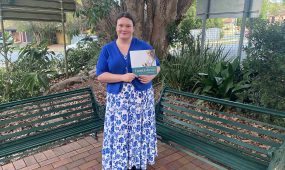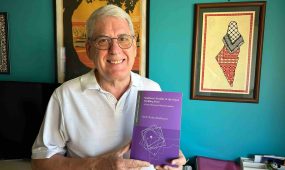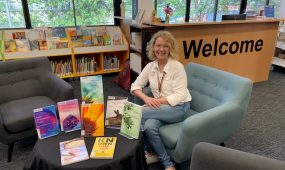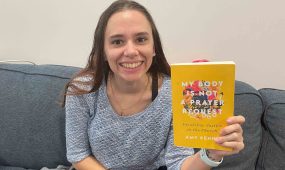Yet in the Dark Streets Shining
Books & Guides
“The book’s evangelical authors write for an evangelical audience, including those in the US where a Christian Zionist ideology often holds sway. They also wish to share their story to a wider audience and in this they have succeeded. The story is one that will appeal to all streams within the Church,” says Helen Rainger from the Palestine Israel Ecumenical Network
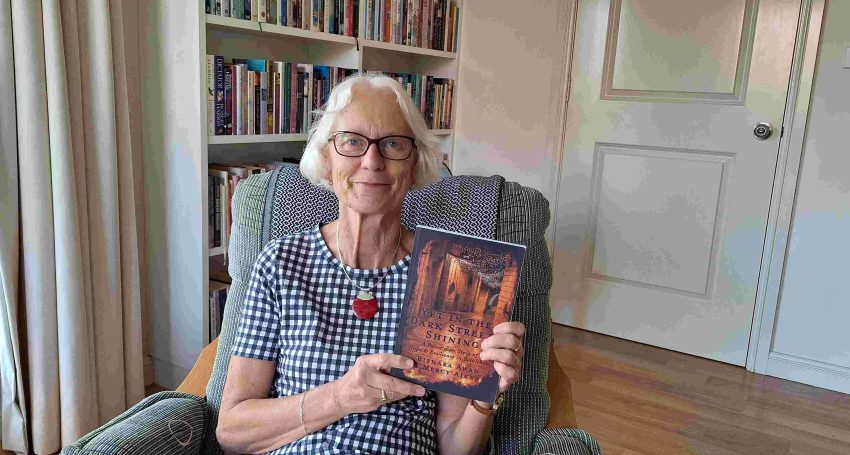
This is a tale well told. Anyone familiar with the 20th and 21st centuries’ history of the Holy Land will find it all here. For those less familiar, let this story take you there.
Bishara Awad, born in Jerusalem, asked Mercy Aiken, an American volunteer at the evangelical Bethlehem Bible College (BBC), to assist him in the telling of his story. Together they have woven the historical, political and personal (including religious) together, written as a first-person account. An added timeline helps the reader.
The title, Yet in the Dark Streets Shining, a borrowing with hints of the melody from “O Little Town of Bethlehem”, holds out a note of hope, but Bishara and Mercy bring us the darkness as well as the light. We learn about Bishara’s family, including the killing of his father by an Israeli sniper, the unfolding story of the Bethlehem Bible College — all this against the backdrop of the wider story of Palestine and the Palestinian people.
The book’s evangelical authors write for an evangelical audience, including those in the US where a Christian Zionist ideology often holds sway. They also wish to share their story to a wider audience and in this they have succeeded. The story is one that will appeal to all streams within the Church. There is a good outline of the relations between the different denominations in the Holy Land (p.99). Boundaries are traditionally being tight with families following a particular denomination. However, when the Bible College is ‘just an idea’, Bishara holds a meeting:
“To my delight, leaders from across the denominational spectrum attended the advertised meeting…I smiled broadly as the room slowly filled with a spectrum of religious dress…(p.100).”
Overcoming many challenges, co-author Bishara launched Bethlehem Bible College, the first Bible college in the West Bank. Keen for the Bible College to have an evangelical leaning, Bishara nonetheless pursued a vision of an inter-denominational college where all Christians could come and study together. Funding remained a challenge and there is a moving recount of a conversation Bishara had with a significant US donor:
Advertisement
“Do you believe that Israel’s repossession of the land is the fulfilment of prophecy? Do you believe that God promised this land to them and no-one else?”
“No,” I told her simply (p.146).”
The funding was subsequently withdrawn. The donor’s question sums up Christian Zionism, and was a question frequently asked of Bishara when he lived in the US for a time.
The book begins and ends with the recalling of the Second Uprising, and the dire circumstances facing the besieged Palestinian people of Bethlehem and beyond. However, one personal story especially draws the reader in — the impending birth of Bishara’s grandson. With the parents fleeing under fire, this baby survived. Other babies did not.
For this reviewer, the book leaves me with a reminder of that familiar line that can become a theology: “The rain [and the bullets and the bombs] falls on the just and the unjust”. Within this, people follow their calling. Bishara lives a life of faith, putting that faith into action in a particular context and learning to “Walk softly.”
You will also read of the impact of the occupation; Gazan church history; Palestinian Christians walking alongside Palestinian Muslims; and, sometimes stories of incredible forgiveness. There is a challenge to those who go on tours or pilgrimages to Israel/Palestine. To walk in the footsteps of Jesus is not merely following the literal path, but opening our eyes to what has become the reality of life in that Holy Land.
Advertisement
We in the Australian Anglican Church hold differing theologies, but the story of the Bethlehem Bible College is one in which we can all share. Leading people to deeper biblical and theological studies, the College also prepares Palestinian Christians to engage with their situation and find a way to send out this message to those who need to hear it.
Thank you, Bishara and Mercy, for your story.
Bishara Awad & Mercy Aiken, 2021. Yet in the Dark Streets Shining: A Palestinian Story of Hope and Resilience in Bethlehem. Cliffrose Press.
Editor’s note: Co-author, Mercy Aiken is coming to Australia in April 2024 on a Palestine Israel Ecumenical Network speaker/book tour that is sponsored by the National Council of Churches in Australia. You can keep up to date with tour events here. The book can be purchased online.

